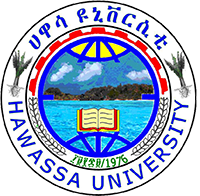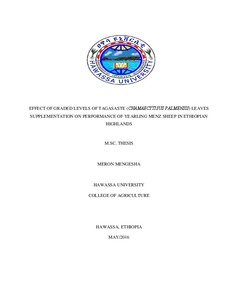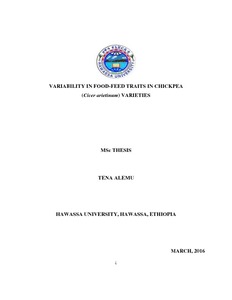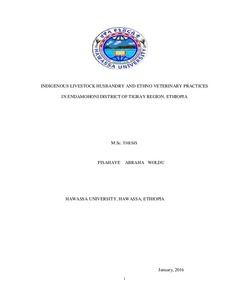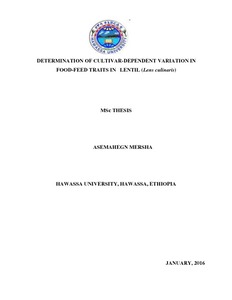Location
Hawassa university is a public university in Ethiopia.
Hawassa University (or HU) was established at Hawassa in April 2000. Since 1976 the colleges of HU had been operational starting with the College of Agriculture. The university was formed by merging three colleges in southern Ethiopia: Awassa College of Agriculture, Wondogenet College of Forestry and Dilla College of Teacher Education and Health Sciences.
Source: Wikipedia (consulted d.d. October 12th 2017)
Members:
Resources
Displaying 11 - 15 of 24Effect of graded levels of Tagasaste (Chamaecytisus palmensis) leaves supplementation on performance of yearling Menz sheep in Ethiopian Highlands
The effects of supplementation with graded levels of tagasaste (Chamaecytisus palmensis) leaves on feed intake, digestibility, and body weight gain (BWG) and carcass characteristics were studied using thirty yearling and intact male Menz sheep. The sheep were blocked into six blocks of five sheep based on their initial body weight and animals from each block were randomly assigned to five treatment groups with six replications per treatment in randomized complete block design (RBCD).
Variability in food-feed traits in chickpea (Cicer arietinum) varieties
The study was conducted with the objectives of analyzing and developing Near Infrared Reflectance Spectroscopy (NIRS) equation for predicting nutritional value and mineral constituents of chickpea haulm, and to determine the relationship between fodder quality and agronomic traits of chickpea. The samples were collected from Akaki, Alem Tena, Chefe Donsa, Debre-zeit and Minjar field experimental sites of Debre zeit Agricultural Research Center and the laboratory work was conducted at Animal Nutrition laboratory of the International Livestock Research Institute (ILRI), Addis Ababa.
Effect of faba bean (Vicia faba l.)- forage inter-cropping: Benefits and trade-offs to improve feed resources in Lemo Woreda, southern Ethiopia
Faba bean (Vicia faba L.), also called ‘broad bean, horse bean’ is an annual crop, which mainly grows in the highlands of Ethiopia for human consumption. The objective of this study was to evaluate the effects of intercropping faba bean varieties with oat fodder on forage biomass, straw, grain yields, and straw quality. For the household survey 108 households (HHs) were selected from two kebeles (53 from Upper Gana and 55 from Jawe kebeles). The average HH family size, land and livestock holdings were 5.53 heads, 1.39 ha and 6.73 heads, respectively.
Indigenous livestock husbandry and ethno veterinary practices in Endamohoni District of Tigray Region, Ethiopia
Indigenous knowledge is local knowledge that exists and buildup through experiences of the local community in the day-to-day practice and it is economically inexpensive. Farmers use their indigenous knowledge from time immemorial till today, thus it gives a good solution for their problems. However, this knowledge is not well studied, analyzed and documented to be used as a basis for farming system development.
Determination of cultivar-dependent variation in food-feed traits in lentil (Lens culinaris)
The study was conducted with the objectives of analyzing and evaluating of lentil varieties for haulm nutritional values, determining the relationship between fodder traits and agronomic traits, and developing Near Infrared Reflectance Spectroscopy (NIRS) equation for predicting nutritional value of lentil haulm. The samples were collected from Debre zeit, Akaki, Chefe Donsa and Minjar field experimental sites of Debre zeit Agricultural Research Center and the laboratory work was conducted at Animal Nutrition laboratory of the International Livestock Research Institute (ILRI), Addis Ababa.

